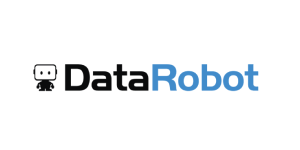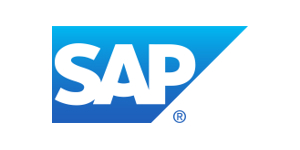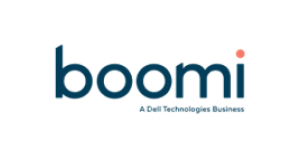 Sandra Ng
Sandra NgWe’ve all heard this term in use when we are speaking about reducing the number of coronavirus infections at any given time. But how does “flattening the curve” relate to organisations in the face of an impending recession? How can technology be leveraged to accelerate growth, and hasten the return to growth, while preparing us for the next normal?
 Sandra Ng
Sandra Ng Jonathan Wong
Jonathan WongListen in to this conversation with the United Nations as we look to explore:
 Sylvie Ouziel
Sylvie OuzielThe pursuit towards sustainability for all mankind has started, and the journey and transformation is set to change the way both individual consumers and smaller companies operate. Sylvie Ouziel brings to life the realities that we face: it is no longer possible to just expect top-down state and government intervention. In this new decentralized economy, the power lies in the hands of consumers and smaller players making the change and becoming prosumers. An orchestrated bottom-up move is needed if companies want to stay relevant and progress in the new sustainable economy.
 Dave Esber
Dave EsberTrust, empathy, and communication are often viewed as essential to our personal relationships, but all are hard to come by in the digital world – and especially between consumers and businesses. As we all navigate new ways of doing business, we’ll explore the gaps businesses face when trying to engage their customers, and strategies for building meaningful digital relationships that drive customer loyalty.
 Sergiu Bodiu
Sergiu BodiuCompanies are changing the game based on their ways of working, focusing on changing processes and the future of their organizations. Building an adaptive enterprise to hyper-personalize customer experience. Customers are changing too, particularly as our world increasingly relies on digital interaction. Traditional IT systems and processes are failing to keep pace with the accelerating operating cycle times of modern customer engagement. Expectations of service standards and customer experience are rising exponentially. Successful digital transformation is not just about changing technology, it’s also about changing the way organizations work together.
 Colin Priest
Colin Priest Vlad Yordanov
Vlad YordanovThe way businesses operate is changing at an exceedingly rapid pace and leaders are looking for viable strategies in order to stay ahead. Leaders need effective ways to navigate the current changes in the work environment and to shift from LAN to WAN traffic. Join this session as we explore:
 Saakshi Wadhawan
Saakshi WadhawanAs the digital economy continues to grow, how has technology and the gig economy impacted the future workforce? How can organisations plan for a more transient workforce with very different technology requirements?
 Simon Piff
Simon Piff Steven Xavier Chan
Steven Xavier Chan Serene Cai
Serene Cai Patrick Wong
Patrick Wong Lu Liu
Lu LiuAt a time where organisations are looking to rapidly drive innovation and new product creation, coworking spaces present themselves as a means to interact with external stakeholders, such as startups, for learning and co-creation opportunities. How can coworking foster a culture of collaboration, cooperation, and co-innovation in a way that can help enterprises successfully drive new product and service development?
 Deepan Pathy
Deepan Pathy Vanathy Senthilathiban
Vanathy SenthilathibanWhile technology has been at the forefront of every digital transformation story, the role of the user and their accceptace is often forgotten. Enterprise technology adoption continues to be a central discussion topic corporations are increasing their investments, turning towards digital technology as a source of competitive advantage. While digital transformation stories painting a picture of technology successfully transforming organisations and boosting revenue continued to fuel the growth of the industry, only 10% of the true potential of technology is being used and adopted by people. Have organisations really experienced true success? Or is it just the glamorization of technology that is helping businesses cope with the modern world, but not truly to be in the forefront of innovation?
 Dr Nicco Tan
Dr Nicco TanOrganisations are excitedly looking towards AI-led personalization experiences, popularised by the likes of Netflix and Spotify. But what really goes on behind the scenes and what do organisations need to know in order to leverage big data, AI and ML to create these capabilities?
 Puneet Garg
Puneet GargIn order for companies to succeed especially on post C-19, they need to look at how they can build foundational as well as future-forward digital capabilities, and in order to do so, need to understand what are the digital and commerce capabilities that they need to double down on in order to build the growth-led organization of the future. Synopsis:
 Caitlin Nguyen
Caitlin Nguyen King Wang Poon
King Wang PoonHow do you roll-out martech with limited budgets when your direct marketing and salesforce team can’t even meet their clients in person? This session will explore how the most important criterion for martech success can actually be first removing the very barriers of technology, so your salesforce can digitally transform into market influencers. You’ll hear how Tupperware Brands has overcome all of these challenges in APAC while evaluating and rolling out Content Management and eCommerce systems.
 Kartik Khare
Kartik Khare Ben Wightman
Ben WightmanWhat is the role of the COO in Digital Transformation? What are their responsibilites when it comes to technology and people? And has this changed post-covid?
 Sreeram Iyer
Sreeram IyerExplore the why and how of the need for organisations to embed security, privacy, policy, and controls into their DevOps culture and processes, in order to enable the entire IT organization to share responsibility for security.
 Gina Smith
Gina Smith Phoram Mehta
Phoram Mehta Amit Verma
Amit VermaNavigating uncertainty requires a coherent strategy. A strategy that will minimize the impact of economic disruption, while maintaining business continuity for the rapidly expanding remote workforce. A strategy that uses technology to ensure that security and access governance for all critical systems are in place to optimize flexible workforce. On the financial side, such a strategy will allow you to keep an eye on foreign exchange markets, limiting exposure and finding opportunities as currency fluctuates. It’s agile enough to revise financial assets quickly and ensure cash availability. It protects against increased credit risks and helps you continue to process receivables with speed and efficiency. And a good strategy enables efficient collaboration – and ensures compliance – across all entities. Do you have a strategy, that can safeguard your finances and allow you to emerge on solid ground, in place?
 Chetan Arun Narake
Chetan Arun NarakeAs organizations grapple with the business disruptions caused by COVID-19, some are struggling to regain their footing while some are able to seize opportunities to position themselves for future growth. In crises such as these, it has emphasized the need for CFOs to be more than financial leaders of the company. In this session, find out the impact of COVID-19 on the finance function and how it has forced digital transformation back to the top of CFO agenda.
 George Chuah
George Chuah Mitsu Doshi
Mitsu Doshi Sereen Teoh
Sereen Teoh Simon Piff
Simon Piff Vlad Yordanov
Vlad YordanovAs the COVID-19 pandemic hit, suddenly the only form of business really available is digital business, and this has led to staggering acceleration of Digital Transformation projects focused on digital commerce, which is now more than ever the lifeline of any business. If you cannot transact digitally, you cannot transact.
This session will explore how organizations can ensure their connections to the online world remain highly available and secure from cyber attacks, discuss the implications of understanding and being able to rapidly adapt to changes in your network activity and to better serve your customers and liaise with partners through the digital business eco-system.
As business come to terms with how this new business model must adapt, making the right decisions today will ensure that not only are businesses resilient, but are ready to attack the next normal head-on and not just survive, but thrive.
 Deepan Pathy
Deepan Pathy Hariharan Muralimanohar
Hariharan MuralimanoharThe COVID-19 pandemic has introduced hardships in multiple areas of business, government, and everyday life. Small businesses in particular have been subjected to increased challenges as the way we do business has changed. Companies equipped with end-to-end automation of their Business Processes, with cloud solutions, were readily able to face the unprecedented challenges posed by the pandemic. Join Deepan & Vanathy in this session where they will explore the software tools that organizations can have at their disposal and how they can be spared from any last minute evaluation of applications especially with regards to cost, data privacy and security.
 Dr. Chris Marshall
Dr. Chris Marshall Ronnie Lee
Ronnie LeeOver the last few months, WFH has become a reality for more than 60% of Singapore's workforce. Will this continue after the concerns of COVID-19 fade away? What have we learned about how people and organizations work best from the lockdown? What will this mean for workplace transformation? In this interactive session, Ronnie Lee from Lenovo and Chris Marshall from IDC will discuss how IT can enable more flexible, intelligent, and collaborative physical workspaces, wherever they may be, to enhance cost efficiency and enterprise productivity.
 Daniel-Zoe Jimenez
Daniel-Zoe Jimenez Kristine Chin
Kristine ChinJoin Daniel and Kristine as they discuss how organizations can address rising customer expectations (particularly as it relates to the Covid-19 era) with innovative customer engagement experiences. They will be looking at how organizations need to rethink customer engagement for the new normal, and how they are moving from physical first to digital first communications and touchpoints.
 Cathy Huang
Cathy Huang Eddie Ho
Eddie HoIT disasters are both unpredictable and inevitable. Recovery from disasters, however, should be planned, predictable and controlled. IDC data shows 47.8% of enterprises across APEJ will revamp their BCP or BCDR for future pandemic/crisis as a result of the COVID-19 Pandemic. This live chat session will cover:
 Dr. Chris Marshall
Dr. Chris Marshall Zohar Cohen
Zohar CohenIT has never been more critical to business — nor has it been more complex. As the number of devices, operating systems, applications, and users continues to grow, how do you stay ahead? The answer is artificial intelligence. In this session, find out how AI-driven insights, automation, and actions can maximize the end-user experience and bring unprecedented simplicity, reliability, and security to enterprise network. From wired and wireless access and SD-WAN, to data centers and multicloud environments, this session will share about the power of the AI-driven enterprise.
 King Wang Poon
King Wang PoonThe future requires fluency in critical skills. But how much of what we knew about these future skills has changed as a result of the past few months? This session answers the question by drawing on research in the future of work and education, and on recent global responses to crisis and recovery. The short answer? Less than we think, but more than we imagine.
 Han Chung Heng
Han Chung HengDigital transformation is a team sport. Now that we've explored what each individual cog in the machine that is an organization needs to function, let's see what happens when all the pieces are brought together, and what else is needed in order for the machine to run smoothly.
 Sandra Ng
Sandra Ng George Chuah
George Chuah Jaclyn Lee
Jaclyn Lee Kartik Khare
Kartik Khare Siddharth Malhi
Siddharth Malhi Shivani Saini
Shivani Saini Simon Piff
Simon Piff Sugumaran
Sugumaran
Sandra Ng
Group Vice President, Practice Group, IDC Asia/Pacific

Jonathan Wong
Chief of Technology and Innovation, Economic and Social Commission for Asia and the Pacific, United Nations

Sylvie Ouziel
International President, Envision Digital International Pte. Ltd.

Chandrani Chakraborty
Group Head of Capablilty & Learning Strategies, Head of HR Asia, QBE Asia

Dr Nicco Tan
Vice President, Marketing, Resorts World Genting
Vineet Sharma
Chief Operating Officer, Pizza Hut

Amit Verma
Regional Director, oCFO Solutions, Asia Pacific & Japan, SAP Asia

Sergiu Bodiu
APAC Transformation Office, Principal Transformation Specialist, Red Hat

Serene Cai
Co-Founder, SpeedDoc & Vice President, Sharing Economy Association of Singapore

Steven Xavier Chan
Senior Director and Regional Head of Government Relations, Asia-Pacific, PayPal

Simon Piff
Vice President, Security & Future of Work Practice, IDC Asia/Pacific

Puneet Garg
Head of Data Science, Carousell

Sreeram Iyer
Chief Operating Officer, Institutional Business, ANZ Bank

Chetan Arun Narake
Trade Advisor for the Ministry of Thailand, DITP India

Caitlin Nguyen
Digital Transformation Lead, Consumer Healthcare - APAC, China, Eurasia, Middle East, Africa, Sanofi

Vlad Yordanov
Senior Director of Solution Engineering, Asia Pacific & Japan, Gigamon

Lu Liu
Co-Founder, Chief Operating Officer, JustCo

Patrick Wong
Country Manager, Gogovan President, Sharing Economy Association of Singapore

Ben Wightman
Head of Data and Analytics, Wunderman Thompson Singapore

Kartik Khare
Vice President, Marketing and Digital, Tupperware Brands

Phoram Mehta
APAC Chief InfoSec Officer, PayPal

Gina Smith
Research Manager, IDC Asia/Pacific

Mitsu Doshi
CFO, FoodPanda APAC

Sereen Teoh
Chief Financial Officer, AirAsia Big Loyalty

George Chuah
CFO, IDC

Zohar Cohen
Director of Sales, Juniper Networks Asia Pte Ltd

Christopher Lee Marshall
Associate Vice President, Big Data, Analytics and AI practice, IDC Asia/Pacific (Moderator)

King Wang Poon
Director, LKY Centre for Innovative Cities & Senior Director, Strategic Planning, SUTD

Jaclyn Lee
CHRO, SUTD

Shivani Saini
Vice President, Global Consumer and Customer Tech Products, GSK Consumer Healthcare

Siddharth Malhi
Vice President, Global Shared Services, Agility Logistics Ltd
 Main Plenary Sponsor
Main Plenary Sponsor Main Plenary Sponsor
Main Plenary Sponsor Main Plenary Sponsor
Main Plenary Sponsor Breakout Track Sponsor
Breakout Track Sponsor Breakout Track Sponsor
Breakout Track Sponsor Breakout Track Sponsor
Breakout Track Sponsor Breakout Track Sponsor
Breakout Track Sponsor Breakout Track Sponsor
Breakout Track Sponsor Focus Group Discussion Sponsor
Focus Group Discussion Sponsor Focus Group Discussion Sponsor
Focus Group Discussion Sponsor Focus Group Discussion Sponsor
Focus Group Discussion Sponsor Live Chat Sponsor
Live Chat Sponsor Live Chat Sponsor
Live Chat Sponsor Live Chat Sponsor
Live Chat Sponsor Live Chat Sponsor
Live Chat Sponsor Live Chat Sponsor
Live Chat Sponsor Live Chat Sponsor
Live Chat Sponsor Exhibitor
Exhibitor